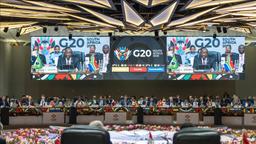Related Publication Files

Evaluation Note / Ayşegül Aytaç & Ussal Şahbaz
The gap between male and female participation in the labor force, youth unemployment, and shortages of skilled labor are just some of the global issues of significance discussed during Turkey’s presidency of the G20. Although the G20 has committed to reducing the gap between male and female participation in G20 countries by 25% by 2025, there is no such G20 target for youth unemployment, which reached 13.1% globally in 2014. Moreover, across G20 countries it is projected that 15% of youth will be permanently left out of the labor market by 2025. For this reason, in order to integrate especially younger people into the labor market and also stimulate innovation, a significant number of countries are seeking to ameliorate these problems by launching specific visa programs for entrepreneurs.
Through these various visa programs, countries offer different opportunities to entrepreneurs with a focus on attracting innovative startups. As the shortage of skilled labor can be considered to be approaching “crisis point”, the issue was taken up as one of the main topics for Turkey’s G20 Presidency and was articulated by the Business 20 SMEs and Entrepreneurship Taskforce.
In this note, we first briefly overview entrepreneurship in the context of G20 documents and then we analyze the startup visa programs in the G20 countries.




